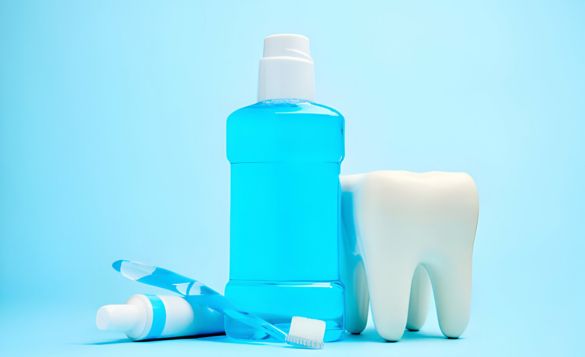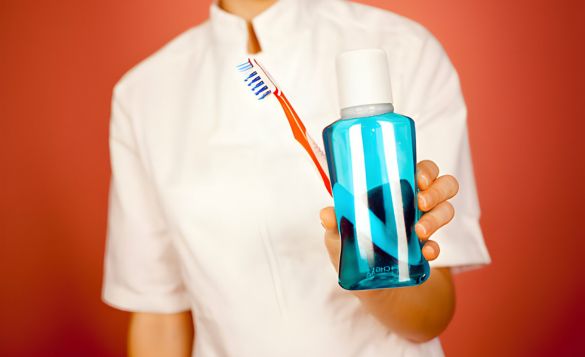
Archives
Categories


Bad breath, also known as halitosis, can be an embarrassing and persistent issue that affects many individuals. It is important to understand the causes of bad breath to effectively address and eliminate it. Poor oral hygiene, gum disease, dry mouth, and certain medical conditions can all contribute to bad breath. Additionally, the foods we consume, such as onions and garlic, can leave a lingering odor in our mouths. By identifying the root cause of bad breath, it becomes easier to choose the best mouthwash that specifically targets and reduces its effects.
Mouthwash plays a critical role in maintaining oral hygiene and combating bad breath. It is an effective adjunct to regular brushing and flossing, as it reaches areas that may be missed during these routine practices. Mouthwash not only freshens breath, but it can also kill bacteria that contribute to the development of bad breath. Using mouthwash as part of a daily oral care routine can significantly reduce the occurrence of bad breath and promote a healthier mouth overall.

When it comes to choosing a mouthwash for bad breath, there are several types to consider. The most common types include antiseptic mouthwashes, fluoride mouthwashes, and natural mouthwashes. Antiseptic mouthwashes contain ingredients such as alcohol, which can effectively kill bacteria and reduce bad breath. Fluoride mouthwashes, on the other hand, help strengthen tooth enamel and prevent tooth decay. Natural mouthwashes, often made with herbal extracts and essential oils, provide a more gentle and holistic approach to combating bad breath. It is important to consider your specific needs and preferences when selecting the type of mouthwash that will be most effective for you.
To ensure you are choosing the best mouthwash for bad breath, it is beneficial to seek recommendations from dental professionals. Dentists and hygienists have firsthand experience with various mouthwash brands and can provide valuable insights. They may recommend mouthwashes that are specifically formulated to target the underlying causes of bad breath, such as those that contain antibacterial agents. It is also important to consider the American Dental Association (ADA) seal of approval, as this indicates that the product has met certain safety and efficacy standards. By consulting with experts and considering their recommendations, you can make an informed decision when selecting the best mouthwash for bad breath.

When selecting a mouthwash for bad breath, there are several important factors to consider. Firstly, it is essential to assess your specific needs and preferences. If you have sensitive gums or are prone to dry mouth, you may want to opt for a gentle and moisturizing mouthwash. Additionally, consider the ingredients used in the mouthwash. Avoid products that contain alcohol if you have a dry mouth or if you prefer a milder taste. It is also important to check for the ADA seal of approval, as this ensures that the mouthwash has undergone rigorous testing and is safe to use. Lastly, consider the cost and availability of the mouthwash, as it should fit within your budget and be easily accessible for regular use.
Using mouthwash effectively is crucial for combating bad breath. Start by reading and following the instructions provided on the mouthwash bottle. Typically, this involves rinsing with the recommended amount of mouthwash for the specified duration. It is important to swish the mouthwash around your entire mouth, making sure to reach all areas, including the back of your throat. Spit out the mouthwash after rinsing and avoid swallowing it. To maximize the benefits of mouthwash, it is recommended to use it after brushing and flossing, as this helps remove any remaining bacteria and debris in your mouth. By incorporating mouthwash into your daily oral care routine and using it correctly, you can effectively combat bad breath and maintain a fresh and healthy mouth.

For those looking for natural alternatives to commercial mouthwashes, there are several options available. One popular choice is salt water rinse, which can help kill bacteria and freshen your breath. Simply dissolve half a teaspoon of salt in a glass of warm water, swish it around your mouth for about 30 seconds, and then spit it out. Another natural alternative is oil pulling, which involves swishing a tablespoon of coconut oil or sesame oil in your mouth for 10-20 minutes before spitting it out. This practice helps remove bacteria and toxins, resulting in improved breath freshness. Additionally, certain herbs such as peppermint, cinnamon, and parsley can be chewed or used as a rinse to naturally freshen breath. Exploring these natural alternatives can be a great option for those who prefer a more holistic approach to oral care.
There are several common misconceptions about mouthwash and its role in combating bad breath. One misconception is that mouthwash alone can eliminate bad breath. While mouthwash can certainly help freshen breath and kill bacteria, it is important to address the underlying causes of bad breath, such as poor oral hygiene or gum disease. Another misconception is that all mouthwashes are the same. In reality, there are different types of mouthwashes with varying formulations and functions. Understanding the specific needs of your oral health and selecting the appropriate mouthwash is key to effectively combat bad breath. It is also important to note that mouthwash should not be used as a substitute for regular brushing and flossing, but rather as a complement to these essential oral care practices.
In conclusion, choosing the best mouthwash for bad breath requires an understanding of its causes, the types of mouthwashes available, expert recommendations, and user reviews. By considering factors such as effectiveness, taste, and specific needs, you can make an informed decision. Remember to consult with dental professionals for their expert advice and look for the ADA seal of approval. Incorporating mouthwash into your daily oral care routine, using it correctly, and addressing any underlying oral health issues will help combat bad breath effectively. Additionally, for those seeking a natural alternative, exploring options such as saltwater rinses, oil pulling, and herbal remedies can be beneficial. While mouthwash is a valuable tool in the fight against bad breath, it is important to remember that it is not a standalone solution and should be used in conjunction with regular brushing, flossing, and overall oral hygiene practices. By following these recommendations and incorporating the best mouthwash for bad breath into your daily routine, you can achieve a fresh and confident smile.
The effectiveness of mouthwash for bad breath can vary depending on individual needs and preferences. Some popular options include Listerine, TheraBreath, and Crest Pro-Health. It’s essential to choose a mouthwash that targets the underlying cause of bad breath, such as bacteria, dry mouth, or oral hygiene issues.
While mouthwash can help temporarily freshen breath by killing bacteria and neutralizing odor, it cannot cure bad breath on its own. Addressing the root cause of bad breath, such as poor oral hygiene, gum disease, or dry mouth, is essential for long-term management. Mouthwash should be used as part of a comprehensive oral care routine that includes brushing, flossing, and regular dental check-ups.
Improving the smell of your breath involves maintaining good oral hygiene habits. This includes brushing your teeth twice a day, flossing daily, cleaning your tongue, and using mouthwash regularly. Drinking plenty of water, avoiding foods with strong odors, and chewing sugar-free gum or mints can also help freshen your breath. If bad breath persists despite these measures, it’s essential to consult a dentist to rule out any underlying dental issues.
Both Listerine and TheraBreath are popular mouthwash brands known for their ability to freshen breath. Listerine contains essential oils that kill bacteria and reduce plaque, while TheraBreath uses oxygenating compounds to neutralize odor-causing bacteria. The choice between the two depends on individual preferences and needs. Some may prefer the strong, refreshing sensation of Listerine, while others may prefer the milder taste of TheraBreath. It’s essential to choose a mouthwash that effectively addresses your specific concerns regarding bad breath.
Our website uses cookies to improve your experience. Learn more about: Cookie Policy
Leave a Reply